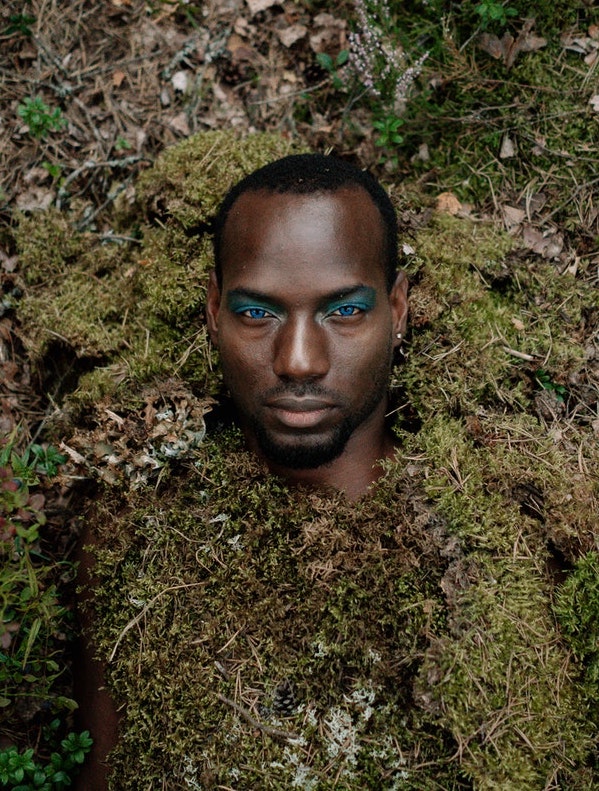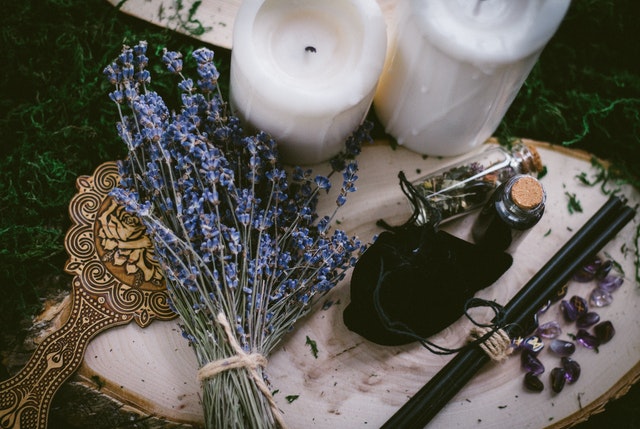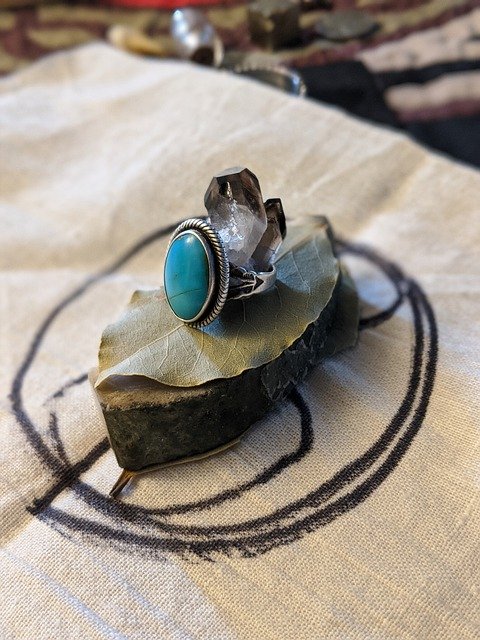Beginner's Guide to Serving Loa
Who are the Loa?
The loa are messengers of the higher power who travelled with our people to Phasmatum. The question of who that higher power is will differ according to one’s ounfo. Some believe the different names are different facets of the higher power. Loa are composed of Brane strings, which allow for supernatural abilities. Similar to the human species, loa originate from different nation. Practitioners know six nations of loa that travelled to Phasmatum:- The Rada: Traditionally-Minded
- The Petro: Change-Makers
- The Ghede: Revel in humanity
- The Kongo: Sometimes referred to as nskisi
- The Ketu: Sometimes referred to as orisha
- The Igbo: Sometimes referred to as alusi
Abilities and Limitations of the Loa
Sight
Loa have the ability to see beyond the physical plane. As they are not from our plane, they are able to spot things that are invisible to human sight.
Plane Walking
Loa are able to easily slip between the membrane and physical plane. If attacked by physical methods, this allows them to evade harm. Though magic will harm them as it operates through the membrane. Consequently, since the laws of the membrane are different from our own, loa can move to different locations rapidly (teleportation) and defy laws of gravity (flight).
Shape Shifting
Loa are able to change their form at will. It is said that loa never show humans their True Forms. Rather, a presentation which reflects their domain. A loa will typically have one or two preferred forms when interacting in the physical plane, but can take any form. It is always important to be kind to strangers; you never know who is a loa in disguise.
Harmonious Living
Loa are able to increase their production of brane strings, which intensifies their innate abilities, through being near communities of like-believers. Conversely, a loa without a community will not be able to manifest on the physical plane. Those that do will possess limited abilities.
Communication
Loa have the ability to communicate within the minds of humans. Most often used with willing humans, through expending enough Brane strings, some loa are also able to push thoughts into or read the minds of unaware or unwilling humans.
Possession
Loa are able to possess willing beings. This can include bestowing one’s gift through a medium or absolute control over a medium’s body. Loa rarely use this ability as they can freely communicate with humans. However, it was quite a common occurrence with our ancestors. Unfortunately, humans have also studied how to possess loa. These life-threatening spells, fipadapo, are strictly forbidden.
Limitations of the Loa
Creatio ex nihilo
Loa cannot create something out of nothing. Although according to ability, they may be able to speed the growth process or reform raw material to their suitability, the same matter must be used in order to do so.
Malleable Identity
Because loa were created as messengers for humans, they are also intrinsically connected to humans. Humans are to serve loa and in return receive their gifts. However, when humans bend the will of the loa so that the loa must serve them, their fundamental persona can change according to the nature of the individual. For this reason, loa are overtly selective as to which humans they appear to. Those loa who experience diso (to bind a loa) or fipadapo (to merge with an unwilling loa) risk losing their identity, even after the human casting the spell has perished.
Resurrection
Loa cannot resurrect humans whose souls have already departed. Although some loa may have the ability to reanimate or control the dead, a human’s soul—which is the domain of the higher power—is out of the reach of loa.
Death
Loa can experience death through depletion of brane. A loa who has been weakened will often return to Guinee (an astral pocket of the membrane). However, those are trapped in a disco or fipadapo spell risk death. It should be noted that their cycle of reincarnation differs from humans. When our ancestors choose to move from the physical plane to be reborn, they have little memory of their past lives. However, a reborn loa retains all memories from previous lives. Therefore, when they do choose to return to our world, they often appear in their preferred body.
Domains of Loa
Loa have control over different domains, which determine additional powers that they may have. For example, Met Agwe has the ability to control the winds of the ocean. Focus on petitioning to him if you find yourself at sea. Loco has domain over growth. He would be one to petition to if a family member is injured or if you just want the ability to grow the most beautiful garden. There are nine agreed upon domains of the loa. Many loa may belong to more than one domain. Beyond the domains in which loa reside, they also have their own motivations and desires. There are those loa who are best called upon in times of mercy and those best called upon in times of vengeance. Many loa are known tricksters; arbitrary abuse of their abilities can come with lessons that may seem harsh in the eyes of human practitioners.How to Start as a Practitioner
The most important thing to understand is that Vodu is not a solitary practice. If you wish to work in harmony with the loa, you must join an ounfo. Although an individual may have limited luck when petitioning to a loa outside an ounfo, there is no guarantee of success. Loa can be tricksters and the inexperienced practitioner may petition to the wrong loa. It is imperative to join an ounfo if you wish to be trained in not only the nuances of each loa’s preferences as you begin the relationship, but also the spells and rituals used for harnessing brane. The second thing you must understand is that Loa can be selective about who they appear to and some can become quite jealous. Within your ounfo, you must make a decision as to which loa you will dedicate the most time to. It may take years before a loa will reliably come when petitioned. And if you try to serve too many loa at once, many may not. For those extraordinary powers that are only available to loa, choose two to three loa to focus the majority of your time. In the longterm, you will greatly increase your abilities by doing so. Finally, branstones are an amazing tool for specialized spells. Understand, however, that brane strings must be freely unwound. To steal from a loa is sacrilegious. In the beginning of your practice, use your branstones wisely for it will take time before a Loa will reliably provide you with brane strings. While you wait, continue to practice drawing and memorizing veve sigils for rituals and spells.A note on phasma creatures: Although it is possible to extract Brane strings from creatures or use parts of their body for spell creation, understand that the result will be weaker and for some creatures, unreliable. Phasma creatures do not contain souls, as loa do. Without a soul, there is no rebirth. Although these creatures originated from the membrane, many are born on Phasmatum, which have weakened their brane strings over time.
Vodu Education
For our young practitioners to be, if you are unsure as to how to start your journey, a great first step is to apply for the Vodu Academy of the Practical Arts. This premier preparatory boarding school and university is open to students between ages eleven and twenty-two. Selection is limited and the cost to attend, steep, but there is no better place in all of Ginen for understanding the traditional ways of Vodu. Professors in the school come from different ounfo, which will allow you access to the first steps of initiation. Though classes will begin with rudimentary understanding of Vodu tradition, all of our students are eventually invited to join an ounfo, which will put you on the fast-track to leveling up your spell casting. Additionally, Vodu Academy even has loa on retainer who not only provide cross-cultural education classes but brane stings meant for practicing spellcasting. Those who wish to start later in life must study the Vodu traditions and then apply this knowledge when requesting to join an existing ounfo. This path may take you longer to find success, but it is still quite viable. Nobody is too old to begin their journey towards becoming a Practitioner.Common Spells and Rituals
Understand that each ounfo has their own veve sigils, rituals, and spells that they have developed over centuries. These are heavily guarded secrets that practitioners only discover through increasing their level in an ounfo family. However, there are popular spells and rituals, found in Vodu shops, that anybody can practice. Some examples include: Oju: Allows you to see phasma beings or creatures that are in disguise, as well as objects infused with Brane. It will present itself as a soft glow. Aabo: Often used before traveling, Aabo spells weaken the ill effects of phasma creatures. Variants include spells that strengthen one’s resolve against charms and spells that deter phasma creatures from attacking. Ipalolo: Quiets your footsteps. Does not silence objects that you may interact with, such as opening a door. Imole: Provides light when you need it. In an emergency situation, you can also use the branstone to create a blinding light. However, using it in this manner will deplete the brane strings much faster. Iferanse: Allows you to communicate with others from a distance. Brane strings will unwind faster the longer the message or the further away it is sent. Itanna: When touching the stone, any creature or being who touches you receives a mild shock. Sometimes used as a prank, it can also distract an attacker long enough for you to retreat.The purpose of this article is to act as a primer for Vodu practitioners. It is a work in progress. Please let me know what you liked about this article and what could be improved. What questions do you have when reading?
Common Terms Ounfo: The ounfo are temples found in Sikel City and surrounding areas. Temples are run by a mambo (priestess) or houngan (priest) and one’s ounfo is considered a second family. Each temple has their own flavor when practicing Vodu and employs different veve sigils when petitioning loa or casting spells. Ounfo are highly secretive about their sigils and spells and one must join an ounfo as an initiate in order to access their rituals. Initiates are accepted as members of the family, but must move up levels to learn different rituals. An initiate cannot join multiple ounfo. Ounfo conduct many ceremonies and celebrations, some which are open only to initiates and others which allow public attendance. Diso: Diso refers to rituals, spells, and technology that bind a loa to the physical plane. Although it’s not strictly illegal, it is against the traditions of nearly all ounfo in Sikel City. Most people employ instantaneous diso spells of loa, which take place over minutes — just long enough to unwind some of the loa’s brane strings. Others create long-term diso rituals through use of collars (called disorun) or other objects which help bind the loa to the physical plane; practitioners who employ this method can then use the brane strings of the loa at will. Loa wearing a disorun are unable to shapeshift or travel through the membrane. However, since one foot is still in the membrane, they are able to replenish their brane, albeit slowly. An inexperienced practitioner can risk killing a loa when attempting a diso spell and those loa that break free from their disorun can wreck havoc on the practitioner and anybody close to him. Fipadapo: Referred to in English as an unwilling merger, the fipadapo is a specific form of the diso ritual, considered to be the darkest avenue. It is strictly outlawed in Sikel City and throughout Ginen. The fipadapo ritual is used to possess a loa in part or in full. Besides being illegal, fipadapo spells are highly dangerous. As the loa’s will pushes against the possession, malevolence builds in both parties. Those loa who have broken free are known to be destructive forces and humans experience Vita Hirundo, a disease where individuals desperately attack and swallow the life-force energy of others. There is no known cure. Nine Domains Sky: Controls the wind, lightening, and clouds. Land: Controls the caves, mountains, and earthquakes. Water: Controls the rivers, seas, and springs. Growth: Patrons of plants and of healing. Fire: Protectors in wars and creators of new technologies and magics. Man: Bestows love, luck, beauty, and prosperity to humans. Beast: Protectors of both animals and hunters. Inspiration: Muses of music, drums, dance, and poetry. Provides wisdom in times of uncertainty. Crossroads: Stands at the boundary between the living and dead or the physical and the spiritual. Common Tools Branstone: gemstones with the ability to store Brane strings. Brandust: Ground branstones or dust found in places with high concentration of Brane strings. An important ingredient in veve sigils, as well as gris gris bags and charms sold in Vodu shops. Vepow Chalk: Made with secret ingredients which differ according to the ounfo—though always containing brandust, ground eggshells, and cornmeal—vepow chalk is used to more easily draw sigils. Altarbox Small wooden chests which house items favored by certain loa. If a practitioner is traveling, they can use an altarbox to petition to their preferred loa. Other Components: Ingredients practitioners and loa use to transform brane strings into a usable spell. These items may vary in price and rarity. Common items may include: animal-derived objects such as feathers, wool, glands, blood, or eyes; plant-derived items such as seeds, berries, herbs, or wood; or personally-connected items such as human hair, blood, or tears.






Lovely article :) I liked the inspiration from modern day Voudou. I felt the supporting photos you used are beautiful and support the article nicely without oversaturating it and distracting from the text. The abilities and limitations of the Loa are interesting and written so clearly that I can imagine them! Regarding my questions, I wonder about the nations of Loa, and how that influences them, and is it a significant detail? For example is a water domain Loa from The Rada going to have very different abilities to one from The Ghede? How about individual personalities? The titles for The Rada, The Petro, and The Ghede are interesting, and I think it would be nice to also have a small description of The Kongo, The Ketu, The Igboo. I would also like to know what, if anything, the Loa demand for their services. Finally, links to specific Loa in this article might work nicely. This is a very high quality article. Nice work :)